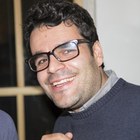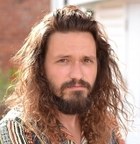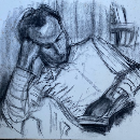People

Filippo Del Lucchese
Project coordinator, Bologna
Filippo Del Lucchese is Associate Professor of Political Philosophy at the University of Bologna, and Senior Research Associate, University of Johannesburg. His research interests are in the early modern period (from the Renaissance to the Enlightenment), history of political thought and Marxism. He has been a Marie Curie fellow, and holds degrees from the universities of Pisa and Paris IV (Sorbonne). He is the author of Conflict, Power and Multitude in Machiavelli and Spinoza (Continuum Press, 2009, published in French by Éditions Amsterdam), The Political Philosophy of Niccolò Machiavelli (Edinburgh University Press, 2015), and Monsters in Thought: Philosophy of Otherness in Ancient Thought. (Edinburgh University Press, 2019). He has also published articles on the history of early modern philosophy and political theory in journals such as History of Political Thought, European Journal of Political Theory, Dialogue, International Studies in Philosophy, Differences. He has taught in Italy, France, Lebanon, the United States, and the United Kingdom. He is currently working on a project on ‘Monstrosity in Modern Philosophy.’
Keywords: Lucretius, Machiavelli, Spinoza, Marx, History of Political Thought, Political Philosophy, History of Philosophy from the Renaissance to the Enlightenment, Ancient Philosophy, Critical theory, Marxism, Materialism, Monstrosity and otherness, Power, Multitude, Social and Political Conflict, Sovereignty, Early modernity, Ontology and Politics.

Hasana Sharp
Project coordinator, McGill
Hasana Sharp is Associate Professor of Philosophy at McGill University. She is author of Spinoza and the Politics of Renaturalization (Chicago, 2011, co-editor of Spinoza’s Political Treatise: A Critical Guide (Cambridge 2018), among other books. She has published articles on Spinoza, Descartes, political theory, feminism, and environmental thought. She is currently completing a manuscript on Spinoza and ideas of slavery. She teaches the history of political philosophy, early modern philosophy, feminist theory, philosophy of race, and environmental thought. She is interested in the history of ideas of domination, freedom, colonialism and race, as well as philosophical ideas concerning the relationship between human beings and the rest of nature.
Keywords: Spinoza, history of political thought, feminism and its history, affects, domination, freedom, colonialism, race.

Valentina Antoniol
Junior member, Bologna
Valentina Antoniol is currently a post-doctoral researcher in Political Philosophy at the University of Bologna, Department of Political and Social Sciences. She obtained her Ph.D. in Political Philosophy, in 2019, from the University of Bologna, in joint supervision with the École des Hautes Études en Sciences Sociales (EHESS) in Paris. In my dissertation, entitled Genealogies at War: Foucault as a Critic of Schmitt, Foucault's reflections on war are related to those of Carl Schmitt by showing that the Foucaultian “polemocritical model” has some relevant theoretical proximity to the Schmittian theory of the political, and in fact develops as a radical critique thereof.
Her current research (Stasis, Exercise of Power and Urban Space: Towards a Philosophical-Political Reflection on Architectural Processes) moves in two distinct directions that, however, can be profitably related. First, the importance of recovering the concept of stasis (an ancient Greek notion which implies that of the city and refers to a particular concept of factional war), as a key notion of political theory. Secondly, the consideration of architecture and urbanism as central nodes of political analysis, which today deserve attention, especially from a philosophical point of view. Her work aims to investigate and show how the history of urban planning and architecture – which can and should be read in philosophical terms – is forced to deal with conflicting processes, implemented in order to trigger, affirm and confirm a given political power related to urban space and therefore, inevitably, to stasis.
Keywords:
Michel Foucault, War, Polemocritical Model
Genealogy, Power, Contemporary French Philosophy, Carl Schmitt
Global Civil War, The Political, Enemy, Exception, Nomos, State, Hobbes, Stasis, Polemology, Urban Conflicts, Henri Lefebvre, David Harvey, Richard Sennett, Ildefons Cerdá, Architecture of Red Vienna
Brutalism, City, Urban Space, Political Philosophy of Architecture
Political History, History of Political Thought, Contemporary Philosophy, Modernity.

Philip-Emmanuel Aubry
Junior member, McGill
Philip-Emmanuel Aubry is a PhD student in political science (political theory) at McGill University. His research interests lie at the intersection of the history of ideas, intellectual sociology, and political theory, where he has been especially influenced by the contextualism of Skinner and Pocock, as well as the conceptual history of Reinhard Koselleck. His undergraduate studies in Economics and Politics at the Université de Montréal cultivated an interest in the critique of political economy and in social theory, especially in the German-speaking world. He completed a master's degree at the Université de Montréal under the supervision of Augustin Simard. His thesis examined Max Weber's methodological writings in the context of the debates that were taking place in Germany at the time in economic science.
Moving to McGill University for the PhD, Aubry is affiliated with the Research Group on Constitutional Studies. Under the direction of William Clare Roberts, his thesis interrogates the links between social science methodology and politics in the works of Max Weber, Joseph Schumpeter, and Karl Polanyi.
Keywords: History of ideas; Critique of political economy; History and methodology of social theory; History and methodology of economics; Economic sociology; Formalism and substantivism; Karl Marx; Carl Menger; Max Weber; Joseph Schumpeter; Karl Polanyi; Karl Löwith; The politics of theory; Begriffsgeschichte; The Historical School; Methodenstreit

Paola Calonico
Junior member, Bologna
Paola Calonico held a Master’s degree in Law and a PhD in History of legal thought at the University of Pisa. She is currently a research fellow at the Department of Political Science (University of Pisa). Her research focuses mainly on the political and legal thought of Jeremy Bentham (1748-1832) and aims to understand the legal reform proposals concerning the lower classes. Moving from historiographical research on the eighteenth-century England, she argues that the Greatest Happiness Principle regarding the emerging working class manifests itself as a set of tactics geared toward labour productivity. The felicific calculus, from this point of view, is presented as an instrument that can detect the degree to which free workers adhere to the new mode of production. She is currently working on Bentham’s unpublished manuscripts on indirect legislation. Her recent research also addresses critical profiles of nudge theory and the spread of mindfulness in the workplace.
Keywords: History of political and legal thought – Bentham, Jeremy – felicific calculus – Eighteenth Century – Poor Laws – disciplinary mechanism – Panopticon – slavery – workforce – free labour – capitalism – indirect legislation – nudge theory – mindfulness.

Pia Campeggiani
Senior member, Bologna
Pia Campeggiani is Associate Professor of Moral Philosophy at the Department of Philosophy and Communication Studies of the University of Bologna, where I teach Moral Philosophy and Philosophy of Emotion. I am the author of Le ragioni dell’ira (Carocci 2013) and Introduzione alla filosofia delle emozioni (Clueb 2021; the English translation is forthcoming with Bloomsbury). My most recent articles appeared in such journals as Emotion Review, Theoria, Apeiron, Rivista di Storia della Filosofia, Giornale di Metafisica, Maia, and the Oxford Bibliographies in Classics, and I recently edited a special section on the emotion of Being Moved for Emotion Review. My forthcoming publications include an invited chapter on ‘Aristotle on subjective rights’ for the Cambridge History of Rights, an invited chapter on ‘Emotion theory in ancient Greece and Rome’ (with David Konstan) for The Routledge Handbook of Emotion Theory, and an invited chapter on ‘Aristotle on feelings of bodily changes’ for The Routledge Handbook of Bodily Awareness.
Keywords: emotion; affectivity; emotion theory; 4E cognition; Aristotle; theory of mind debate; emotion and decision-making; aesthetic emotions; mixed affect.

Francesco Cerrato
Senior member, Bologna
Francesco Cerrato is Associate Professor of History of Philosophy at the Department of Philosophy and Communication of the University of Bologna. He is the Director of Crivispe (Centre of Philosophical Research on the Social, Political and Economic Violence) at the same Institution and Editor in Chief of «Dianoia. Rivista di filosofia». He has worked on Seventeenth-century Ethics and Political Philosophy. He has dedicated his most significant works to Spinoza and his influence on contemporary philosophical and political thought. Among his publications are: «Cause e nozioni comuni nella filosofia di Spinoza» (2008), «Un secolo di passioni e politica. Hobbes, Descartes, Spinoza» (2021), «Liberare la modernità. Spinoza in Italia tra Risorgimento e Unità» (2016) e «Stili di Vita. Fonti, forme e governo nella filosofia spinoziana degli affetti» (2016).
Keywords: Spinoza, Descartes, Cartesianism, Cause, Hobbes, Passions, Fear, Marx, Marxism, Italian Marxism, Italian Thought, Giovanni Gentile, Actualism, Benedetto Croce, Violence, Totalitarianism, Fascism.
Molly Dea-Stephenson
Junior member, McGill
Molly Dea-Stephenson is a PhD student in the philosophy department at McGill University. She holds an Honours Bachelor of Arts in Philosophy from the University of Toronto. She served as Co-President, Women and Minorities in Philosophy Chair, and Events Coordinator for the University of Toronto’s Philosophy Course Union. She has presented her work on the significance of human edibility to environmental philosophy at the Canadian Society for Women in Philosophy. Her current research interests concern environmental philosophy and philosophy of nature, feminist philosophy, philosophy of embodiment, and 20th century continental philosophy, with a particular focus on phenomenology.
Keywords: Maurice Merleau-Ponty, Val Plumwood, Luce Irigaray, environmental philosophy/philosophy of nature, feminist philosophy, embodiment, phenomenology, 20th century continental philosophy

Michael Denigris
Junior member, McGill
Michael Denigris is a fourth-year PhD student in political science at McGill University. He received his BSc in philosophy from MIT in 2017, and his MA in the social sciences from the University of Chicago in 2018. At Chicago, his thesis work concerned Jürgen Habermas’s sociological theory of communicative action and the issues that it must confront in light of Moishe Postone's value-theoretic reading of Marx’s Capital and Sally Haslanger’s “cultural-techne” account of ideology. Denigris’s current research interests coalesce broadly around questions about freedom in the history of political theory and philosophy, including questions about the nature of the market, the state, and the international proletariat. Areas of special interest include Marxism and value-form theory; the processual nature of science and education as activities; idealism and materialism; theories of history, the human condition, and recognition; and the ideology of political economy. He is also interested in how questions of freedom, meaning, life/death, and human sociality were articulated in the ancient world, with an emphasis on Plato, ancient comedy, and Epicureanism, especially as the conflict between Platonism and Epicureanism was transmitted into Augustine and Dante.
Keywords: Critique of political economy; Ideology; Theory of communicative action; Spontaneous orders; Value-form theory; Freedom; Domination; Recognition; Philosophy of history; Jürgen Habermas; Sally Haslanger; Moishe Postone; Friedrich Hayek; Plato; Lucretius; Augustine; Dante; Aristophanes; Critical Theory; Epicureanism; Comedy and tragedy.

Marguerite Deslauriers
Senior member, McGill
Marguerite Deslauriers is a Professor of Philosophy at McGill University who works in ancient, renaissance, and early modern philosophy, with a focus on the history of conceptions of sexual difference and of feminist arguments. She is the author of Aristotle on Definition (Brill, 2007) and Aristotle on Sexual Difference: Metaphysics, Biology, Politics(forthcoming, Oxford, 2022), and co-editor of the Cambridge Companion to Aristotle’s Politics (Cambridge, 2013). She is working on a monograph on Lucrezia Marinella for the series Cambridge Elements: Women in the History of Philosophy, and an edited volume of translations of early feminist works: Equality and Superiority: Texts from Renaissance and Early Modern Europe (under contract with OUP). Searchable transcriptions of some of these texts, and information about the authors and the contexts in which they were writing, can be found at: http://querelle.ca.
Keywords: Aristotle, history of feminism, Renaissance, pro-woman, equality.

Andrea Di Gesu
Junior member, Bologna
Andrea Di Gesu earned his PhD in political philosophy at Scuola Normale Superiore (Pisa, Italy) and Paris-1 Sorbonne University (Paris, France), under the supervision of Roberto Esposito and Sandra Laugier. He has also been visiting scholar at Warwick University and Columbia University. He graduated from Rome-Tre University, with a thesis on the concept of form of life in the philosophy of Ludwig Wittgenstein, under the supervision of Paolo Virno. His thesis examines the concept of political community and radical democracy in the thought of Wittgenstein and Foucault, and his main research interests include contemporary critical theory, theory of radical democracy, poststructuralist thought and ordinary language philosophy. He also worked and published articles on contemporary Italian political thought,
as well as Benjamin, Cavell and the early American philosophical tradition. He has published essays and articles with University of Cà-Foscari editions, Almanacco di Filosofia e Politica, Quaderni Materialisti, Argalia, Philosophy and Social Criticism, and Theory, Culture & Society.
Keywords: Radical Democracy; Critical theory; Ordinary Language Philosophy; Michel Foucault; Ludwig Wittgenstein; Stanley Cavell; Italian Political Thought; Walter Benjamin; Giorgio Agamben.

Diego Donna
Senior member, Bologna
Diego Donna is Assistant Professor at the Department of Philosophy and Communication Studies.
He is a member of the ‘International Center for Spinozan Studies’ Sive Natura (Unibo) and the ‘European Society for Early Modern Philosophy’ (ESEMP). He coordinates the Research Group ‘Enlightenment: Histories and Philosophies’ (Unibo).
His interests range from the theory of knowledge in early modern philosophies to the reception of Cartesian and Spinozan philosophy in the 20th century, including the French and German debate on the Enlightenment.
Among his recent publications: Contre Spinoza. Critique, système et métamorphoses au siècle des Lumières (Genève, Georg, 2021); Dispersione ordine distanza. L’Illuminismo di Foucault Luhmann Blumenberg, Macerata, Quodlibet, 2020); Libertas Philosophandi. Freedom of Expression, Conscience and Thought in Modern Philosophy (Modena Mucchi, 2020); Norma, segno, autorità. Filosofia, teologia, politica in Spinoza (Bologna, BUP, 2019).
Keywords:
Metaphysics; History of Early Modern Philosophy; History of Contemporary Philosophy; Ethics; Spinoza; Biblical Critique; Theory of Knowledge in Early Modern Philosophy; Descartes; Theories of Method in Modern Philosophy; History of Ideas; Intellectual History; Mos Geometricus; Bayle; Skepticism; Crisis of Modern Reason; Dialectics of Enlightenment; History of Sciences and Techniques; Critique of Systems; Systems of Nature; D’Holbach; Locke; Experience and Knowledge; Body-Mind Problem; Condillac; Encyclopedia; D’Alembert; Libertas Philosophandi; Kant; Theory of Systems; Luhmann; Second-Order Cybernetics; Philosophy of Right; Nihilism; Foucault; Social and Political Philosophy; Secularization; Blumenberg; Hermeneutics of Enlightenment.

Giovanni Giorgini
Senior member, Bologna
Giovanni Giorgini is Professor of History of Political Thought at the University of Bologna and Adjunct Professor of Political Science at Columbia University. A Life Member of Clare Hall College, Cambridge, he has been Fellow of the Italian Academy at Columbia University and Visiting Professor in many universities in the United States (Princeton, Chicago, Pittsburgh) and in Italy (Bolzano, IMT-Lucca).
Giorgini is the author of three books: La città e il tiranno. Il concetto di tirannide nella Grecia del VII-IV secolo a.C. (1993), an examination of the evolution of the concept of tyranny in ancient Greece; Liberalismi eretici (1999), a critical interpretation of some contemporary political philosophers, such as Stuart Hampshire, Leo Strauss, Martha Nussbaum, Michael Oakeshott, Alasdair MacIntyre; I doni di Pandora. Filosofia, politica e storia nella Grecia antica (2002), an exploration of some philosophical-political themes and classical authors, such as Protagoras, Plato, Aristotle, Thucydides, Xenophon, conducted in a conceptual history perspective. He is co-editor (with Elena Irrera) of The Roots of Respect (De Gruyter, 2017), a collection of essays examining the notion of ‘respect’ in a historical and philosophical perspective, where he contributed an essay on respect in ancient Greek poetry; and (with Dino Piovan) of The Brill Companion to the Reception of Athenian Democracy (Brill, 2020), where he also contributed an essay on Leo Strauss.
Giorgini’s area of specialization is ancient Greek philosophy and its revival in contemporary political theory. He is most interested in conceptual history, the history of ideas and how institutions represent and embody political ideals: the relationship between politics and ‘vision’ and how the study of classics may help to create political vision. His current interests are Machiavelli’s use of classical political thought; ancient and modern relativism and the strategies devised to tackle it.
Keywords:
Classical political thought – The Sophists, Plato and Aristotle – Machiavelli – John Locke and the liberal tradition – contemporary liberal political theory (Leo Strauss, Martha Nussbaum) – relativism, ancient and modern.

Dallas Jokic
Junior member, McGill
Dallas Jokic is a PhD Student in Philosophy at McGill University in Montréal, Québec. He completed his MA in Philosophy at Queens University and his undergraduate degree in History and Philosophy at the University of Guelph. His dissertation attempts to put accounts of fascism from Marxist and anti-colonial traditions into conversation with contemporary accounts of fascism in philosophy, arguing that colonialism must be understood as a fundamental element of fascism. His work also engages scholarship on voluntary servitude and connects fascism with other political movements throughout history which lead people to “fight for their servitude as if for salvation.” He has interests in Spinoza, Marxism, anti-colonial thought, political philosophy, and continental philosophy, especially Deleuze and phenomenology. His PhD research is being funded by the Social Sciences and Humanities Research Council (SSHRC) and he has worked for a research assistant for Dr. Karen Racine, Dr. Yves Winter, and Dr. Hasana Sharp.
Keywords: fascism, colonialism, Spinoza, Marx, political philosophy, Deleuze.

Maria Laura Lanzillo
Senior member, Bologna
Maria Laura Lanzillo, Ph.D. in Political Philosophy (University of Pisa), is Full Professor of History of Political Thought at Department of Political and Social Sciences, University of Bologna (Italy). She's editor in chief of «Filosofia politica» (ed. by Il Mulino – Bologna) and Scientific Director of web journal «Governare la paura. Journal of interdisciplinary Studies» (http://governarelapaura.unibo.it). She’s Programme Director of second cycle degree in Mass Media and Politics at University of Bologna (Forlì Campus) and Director of MMP webtv, the webtv of Forlì Campus (www.mmpwebtv.eu).
Her research focuses on dialectical thought in France and Italy in the 20th century (i.e. Alexandre Kojève and Giovanni Gentile), on Voltaire's political thought, on French liberalism, particularly on Alexis de Tocqueville, and on the concepts of tolerance and multiculturalism from a historical and political perspective. Her research is also focused on the concepts of fear and security, liberty and utopia. She is currently engaged in a funded research project on the concept of voluntary servitude from a historical-political perspective, with a focus on today’s return of this concept as a hermeneutic category of new forms of “illiberty” in the crisis of liberal democracy. She is also writing an intellectual biography of Harriet Taylor.
Keywords: Hegel Renaissance, Alexandre Kojève, Giovanni Gentile, Voltaire, French Enlightenment, Alexis de Tocqueville, tolerance, toleration, multiculturalism, communitarians-liberalism, rights, freedom, secularism, cultures, democracy, fear-risk-security, utopia, voluntary servitude.

Riley Hannah Lewicki
Junior member, McGill
Riley Hannah Lewicki is a PhD student in philosophy at McGill University. She holds a MA in Political Science and a Bachelor of Social Science from the University of Ottawa. She is the former vice president of the undergraduate political science journal Topolitique (TOPO), later renamed as Undergraduate Journal of Politics, Policy and Society (UJPPS). She was also the Outreach Editor and cofounder of the photography magazine Vulgaris. Her master’s thesis, The Problem of Idleness: An Arendtian Justification of Universal Basic Income in the Face of Mass Automation, written under the supervision of Robert Sparling, was award nominated. She has lectured on the intersections of transgender and disability identities, and published on the impact of the otokonoko genre of manga on its English speaking trans-feminine readers. Her research interests are currently focused on twentieth century political thought, with a particular interest in critical theory and phenomenology.
Keywords: Arendt, Marcuse, Merleau-Ponty, Sara Ahmed, phenomenology, gender, transgender, feminist theory.

Marta Libertà De Bastiani
Junior member, Bologna
Marta Libertà De Bastiani received her PhD from the University of Rome 3 and from the ENS of Lyon presenting a dissertation entitled: Spinoza and Roman Historians: the use of quotes, examples, and histories in Spinoza's political thought (2019). She is a member of the editorial board of Consecutio Rerum: Italian journal of philosophy and social theory and of In Circolo. Rivista di Filosofie e culture. She presently teaches history and philosophy in high school as well as Greek and Latin in private schools. She is a member of the Societas Spinozana, italian society for the advancement of Spinoza studies.
Her fields of research range between Modern Philosophy, Modern Political thought, and Ancient Literature. Currently, her research addresses Spinoza’s relationship with Roman Thought, aiming to determine how Spinoza moral and political thought is shaped by ancient writers, in particular by Roman historians and poets whose Works were found in Spinoza’s library. More generally, she works on the connection between history, historiography and political thought, which is strongly stressed during XVI and XVII centuries (namely in Political Tacitism) and on the role played by historical characters (especially from ancient history) in defining political models as well as political policies in modern philosophy (Spinoza, Hobbes, Rousseau,…).
Key-words: Spinoza; Hobbes; Political Thought; Tacitism; Ancient political thought; Ancient historians.

Dave Mesing
Junior member, Bologna
In his dissertation, “Elements for a Theory of Strategy: History, Politics, and the Black Panther Party,” Dave Mesing brings together his training in critical theory and continental philosophy with a case study of the history and politics of the Black Panther Party. The major direction of his research is now oriented towards the history of philosophy, in what he tentatively calls a “military history of philosophy.” Of key interest are the figures Machiavelli and Clausewitz, but the project is rooted in continuing to work on the concept of strategy in conversation with the history of philosophy.
As a longer-term research agenda, Mesing aims to reflect on the particular research questions and problems in my work on strategy and related concepts in a more methodological and meta-theoretical register than thus far. On the one hand, this agenda will entail methodological reflections on interdisciplinarity in the context of history, sociology, and critical and political theory, while, on the other hand, it will involve reflection on different forms of political theorizing, especially insofar as many of the primary texts of interest to my research cases involve memoir and other less traditional textual forms. I plan to think about this set of questions as a means for contributing to the production of critical theory in the present, especially as many of the sparks of my historical case studies—including police brutality, political repression, disenfranchisement, and social exclusion—remain active and urgent problems in the present.
Keywords: political philosophy, strategy, tactics, critical theory, materialism, Spinoza, Machiavelli, Black Panthers, Marxism, ontology of relations, historical materialism, critical social theory.

Thomas Minguy
Junior member, McGill
Thomas Minguy is a PhD candidate in the department of Philosophy at McGIll University (year 4). His research interests, historically speaking, concern Modern Philosophy (Machiavelli, Descartes, Spinoza, Rousseau), German Idealism (Hegel, Schelling, Marx), and Contemporary French Thought (Bataille, Levinas, Deleuze, Derrida). Conceptually, his interests mostly revolve around notions of desire, the political concept of constituent power, deconstruction of sovereignty, and eroticism. He has additional teaching interests in Existentialism and the relationship between Philosophy and Literature.
Keywords: Spinoza, Deleuze, Bataille, political philosophy, contemporary French thought, modern Philosophy.

Paolo Missiroli
Junior member, Bologna
Paolo Missiroli holds a PhD in Philosophy from the Scuola Normale Superiore in Pisa and the Université de Paris, Nanterre. He obtained his doctorate with a thesis on philosophical anthropology and theoretical philosophy entitled Il posto del negativo. Un’antropologia filosofico per l’Antropocene (The place of the negative. A philosophical anthropology for the Anthropocene). He is the author of Teoria critica dell’Antropocene. Vivere dopo la Terra, vivere nella Terra (Critical Theory of the Anthropocene. Living after the Earth, Living in the Earth). He is a lecturer in Theoretical Philosophy at the University of Modena and Reggio Emilia and of History of Philosophy at the University of Bologna.
He focuses on contemporary French philosophy, especially the thought of Maurice Merleau-Ponty and the French philosophy of the 1930s (Sartre, Kojève, Wahl). His theoretical interests lie in the elaboration of an ecological (i.e. non-Promethean) and ecological-political-radical thought for the Anthropocene, which would have at its basis an ontological option defined as ‘negative realism’, to be placed within the realist turn of contemporary philosophy. To this end, in addition to the historical-philosophical elements mentioned above, his work takes up points from German philosophical anthropology, French post-structuralism and the Western pantheistic tradition. At the same time, and to the same end, he has made use of studies from multiple fields of research: from cultural anthropology (de Castro, Descola, Shalins) to phenomenological geography (Berque, Yi Fu Tuan, Dardel), from neuroscience (Tommasello) to palaeontological and anatomical-anthropological studies, from geological sciences to Earth System sciences.
Keywords:
Anthropocene; Ecology; Political Ecology; Merleau-Ponty; Sartre; Kojève; Wahl; Realism; Ontological realism; realistic turn; ontological turn; Pantheism; Prometheism; Degrowth; relations between geology and philosophy; phenomenological geography.

Andrea Moresco
Junior member, Bologna
Doctorant en Philosophie à l’École Normale Supérieure de Pisa, sous la direction de Professeur Roberto Esposito. Le sujet de la thèse concerne la théorie de l’institution dans la pensée politique de Spinoza, qui recherche l’équilibre dynamique entre le droit commun naturel de la multitude et le droit civil de l’État. Le développement de la thèse analyse le rôle du négatif dans l’ontologie politique de Spinoza – la détérmination externe et hétéronome de la cupiditas humaine, le renversement du désir de liberté en désir d’esclavage, l’ambition de domination qui naît dans le rapport d’imitation inter- humaine. L’enjeu est de démontrer que les institutions doivent être déterminées par les désirs et les affects de la citoyenneté pour incorporer la négativité et être stables. Membre du comité de redaction de la revue «Quaderni materialisti» (éditeur Mimesis) et de la série «Almanacco di Filosofia e politica» (éditeur Quodlibet). Membre du comitè scientifique de la Societas Spinozana.
Domaines de recherche: les œuvres politiques de Spinoza, la critique à Hobbes et à la tradition contractualiste, la définition ontologique et politique de la «multitude»; la théorie des affects et du corps de Spinoza dans le débat post-cartésien; l’héritage de Spinoza dans la pensée matérialiste française et le marxisme italien et français de la seconde moitié du XX siècle; Althusser, théories de la temporalité plurielle et de l’historicité événementielle; l’ouvriérisme italien et les développements philosophiques du post-ouvriérisme; techniques de "distant reading" dans l’histoire de la philosophie : collecte et gestion numériques, de grandes quantités de données dans la bibliographie relative à un auteur ou à un domaine d’études; constitution de corpora analysables avec outils de topic modeling
Mots-clès: Spinoza, institution, conflit, droit naturel, multitude, commun, ontologie politique, désir, imitation, détérmination, surdétérmination, Althusser, théories de la temporalité plurielle, événement, ouvriérisme, post-ouvriérisme, sujet politique, subjectivité, travail, relation de production, lutte de classe.
Luigi Emilio Pischedda
Junior member, Bologna
After graduating with honors in Philosophical Sciences at the University of Padua with a thesis on the notion of space in Spinoza's Ethics, Luigi Pischeda will soon defend his doctoral thesis – Between Land and Sea. Space, Territory and Law in Spinoza's Thought – in the International PhD Program in Philosophy promoted by Ca' Foscari University Venice and Université Paris 1 Panthéon-Sorbonne. His research interests are mainly focused on modern political philosophy, with particular attention to the socio-cultural context of the Republic of the United Provinces. His research method focuses on conceptual history in synergy with the critical tools of political iconology. In addition to Spinoza, he works on Grotius, Cunaeus, and Jewish Political Thought. During his doctoral years he collaborated with the Center for Renaissance and Early Modern Thought (Ca' Foscari University), organizing seminars, book presentations, and conferences. He also facilitated the Université Paris 1 Panthéon-Sorbonne discussion group on Spinoza, entitled Amici colende. He has been a member of the Societas Spinozana since 2017, and part of its scientific committee since 2020.
Keywords
Spinoza; Low Countries; Dutch Golden Age; Modern Political Thought; Political Iconology; Visual Studies; Philosophy of Law; Begriffsgeschichte; Sovereignty; Citizenship; Territory; Landscape representation; Carl Schmitt; Hugo Grotius; Thomas Hobbes; Jewish Political Thought; Roman Law; Colonialism; Cartography; Space; Materialism; Global History.

Pier Giuseppe Puggioni
Junior member, Bologna
PhD student in philosophy of law at the University of Pisa. I took my Bachelor degree in Law in April 2019 at the University of Pisa, where I have been PhD candidate since November 2019. Legal pluralism and the socialist conception of law have been the main focus of my research so far, which I approached from a historico-philosophical perspective. At the beginning, I delved into the Italian pluralist and institutionalist debate in legal theory, mostly through the works of authors such as Santi Romano, Giuseppe Capograssi, and Antonio Pigliaru. At this stage I was mostly concerned with these authors’ way of defining categories like ‘law’, ‘institution’, ‘legal order’, ‘legal experience’ as intertwined with moral and social practice. During my doctoral studies I diverted my analysis of pluralism to its British branch, thereof drawing attention to the legal conceptions in the British versions of idealism and socialism. I approached, in this way, the ideas of Harold J. Laski, on whose itinerary I put particular emphasis. This led me to enquire into the materialistic interpretation of some stabilised categories in jurisprudence and public law, such as the problems concerning political obligation in a democratic form of government, and the relationship between constitutionalism and ideology.
Following the line of these critical perspectives on law, I have recently started to explore the relationship between moral philosophy and legal conceptions in the Modern Age, as regards, in particular, the debate between Kant and some authors of the so-called Scottish Enlightenment.
Keywords: legal philosophy; legal positivism; legal pluralism; legal anthropology; history of philosophy; institutional theory of law; political philosophy; political pluralism; philosophy of history; British idealism; British socialism; historical materialism; Marxism; theory of political obligation; theory of juridical obligation; sovereignty; international law; plurality of legal orders; conflict of legal orders; Thomas H. Green; Harold J. Laski; Carl Schmitt; H. L. A. Hart; Santi Romano; Giuseppe Capograssi; Antonio Pigliaru; Norberto Bobbio; Artificial Intelligence; Law and Music; Politics and Music; constitutional theory; revolution; withering away of the State.

Andrea Ricci Maccarini
Junior member, Bologna
Ricci Maccarini’s philosophical research is focused on the change in the theological-political paradigm between the Renaissance and 17th century; it concerns the relationship between theology, metaphysics, and anthropology during the decline of medieval scholasticism. Ricci Maccarini studies how major events, such as the Reformation, the Scientific Revolution, and the rise of financial Capitalism changed the face of Europe from a typically medieval “God-centred” point of view, to a “reason-centred” one.
Ricci Maccarini aims to deepen the analysis of the effects and the involvement of the vulgus, the people. Whereas Thomas Aquinas mostly tolerates even a tyrannical political order, Hobbes strips the vulgus almost all of its rights and, according to Spinoza’s principle of jus sive potentia, the vulgus maintains its prerogative to rebel. We know that all of these theories are the result of a precise view of the human being, God, and the relationship between them, and it can be useful to take a look at the concepts of obedience and resistance to the imperium given the role of faith and religion in authors who, unlike Hobbes or Spinoza, did not have a systematic political theory. Instead, they had a strong theological or anthropological position (like Thomas Aquinas himself or Pico della Mirandola, whose concept of radical freedom had been compared to Sartre’s existentialism).
Always trying to develop a philosophical research that can say something about our current social situation, Ricci Maccarini examines the role of faith and religion during their decline in the passage from medieval to the modern eras could help us to better understand our present times, in which the role of the reason – the very same concept of reason that was born with Descartes, the Scientific Revolution, and had its breakthrough in the Enlightenment – is to be questioned.
Keywords
Theology; Politics; metaphysics; political theology; Philosophy; Scholasticism; Spinoza; Aquinas; Christianity; Reform; Scientific Revolution; Imperium; multitudo; vulgus; faith; religion; God; antropology; rationality.

William Clare Roberts
Senior member, McGill
William Clare Roberts is Associate Professor of Political Science at McGill University. He received his PhD in philosophy from The Pennsylvania State University in 2005, where his dissertation examined Marx’s theories of labor. After teaching for two years at Washington and Jefferson College, he moved to McGill in 2007. He is the author of Marx’s Inferno: The Political Theory of Capital (Princeton University Press, 2017), which was awarded the Isaac and Tamara Deutscher Memorial Prize for “exemplif[ying] the best and most innovative new writing in or about the Marxist tradition.” He has also authored articles in Review of Politics, Contemporary Political Theory, Interventions: International Journal of Postcolonial Studies, Historical Materialism, European Journal of Political Theory, The CLR James Journal, Nineteenth-Century French Studies, Polity, and Analyse und Kritik. His research centers on Marx and Marxism, the history of political thought, republican and neo-republican political theory, the history and critique of political economy, and social theory. He also teaches broadly in the history of political thought, with a special interest in ancient political thought and the nineteenth century. He is currently at work on two book projects. The first is A Radical Politics of Freedom, an attempt to rework radical political thought by centering on freedom as non-domination. The second is Universal Emancipation and History: The Making and Unmaking of ‘History from Below’, an intellectual and conceptual history of the idea and practice of writing “history from below,” from Marx to the present.
Keywords: Karl Marx; Marxism; CLR James; Philip Pettit; Louis Althusser; GWF Hegel, Prosper-Olivier Lissagaray; Critical Theory; Critique of political economy; Value-form theory; Republican political thought; Domination; Freedom as non-domination; Ideology; Neo-institutional economics; History from below; Self-emancipation; Nineteenth-century political thought; Ancient political thought; Dante; Colonialism and slavery; Orlando Patterson; James Scott; Subaltern Studies; Agency; Power.

Lorenzo Vinciguerra
Senior member, Bologna
Lorenzo Vinciguerra s’intéresse à l’histoire du spinozisme, au énéralee américain, à l’histoire de la sémiotique, à la philosophie française (Merleau-Ponty, Deleuze, Derrida), à la Philosophie de l’art et à l’histoire de l’ésthétique, ainsi qu’à l’anthropologie philosophique. Issu d’une famille de peintre et de énéra, Lorenzo s’est formé en Italie, d’abord à l’Académie des Beaux-Arts “Brera” de Milan, puis à l’Université de Milan, à la “Scuola normale énérale di Pisa” sous la direction de Paolo Cristofolini, avant de passer à l’Ecole normale supérieure de Paris sous la direction de Bernard Pautrat et de Pierre-François Moreau. Ici il a d’abord obtenu l’”Agrégation de philosophie” (1995) puis soutenu sa Thèse de doctorat à la Sorbonne (2000). À l’Université d’Amiens, il a dirigé le Centre de Recherche en Arts et Esthétique (2012-2020). Depuis 2020 il est Professeur de Philosophie morale à l’Université de Bologne. Il a donné des énéralees dans de nombreuses universités du monde (Amérique du Sud, Canada, Europe, Afrique, Russie Israel). Avec François Flahault (CNRS) il a dirigé le séminaire doctoral “Philosophie et anthropologie énérale” à l’Ecole des Hautes Etudes en Sciences Sociales (EHESS) de Paris (2007-2022).
Keywords: Spinoza, spinozisme, art, peinture, esthétique, anthropologie, Peirce, Merleau-Ponty, Deleuze, Imagination, signe, trace.

Elia Zaru
Junior member, Bologna
Elia Zaru graduated in 2011 in Philosophy (BA) at the University of Bologna with a dissertation dedicated to the idea of «passive revolution» in Antonio Gramsci’s political philosophy. In her MA thesis (University of Milan, 2015) in History of Political Thought, Zaru addressed the contemporary debate on the concept of «empire» as proposed by Antonio Negri and Michael Hardt in 2000, and discussed the conceptual transformations of sovereignty within the global context. In 2019, she published La postmodernità di «Empire». Antonio Negri and Michael Hardt nel dibattito internazionale (2000-2018), published by Mimesis (Milan-Udine).
From 2017 to 2021 Zaru continued her research at the Scuola Normale Superiore, where she obtained a Ph.D. in Cultures and Societies of Contemporary Europe. Her doctoral thesis in History of Political Thought and Political Philosophy deals with the contemporary debate surrounding the so-called «crisis of modernity» from 1979 and 2020. Based on this research, she is publishing her second book, titled Crisi della modernità. Storia, teorie e dibattiti (1979-2020) (ETS, Pisa). This study concerns the spread of concepts like «postmodern» and «postmodernity» and the debate they have generated within sociological, epistemological-political, and historical discourses, with the aim of showing how, despite their diversity, the positions within this debate share a (typically modern) philosophy of history, according to which history is represented as a linear succession of airtight epochs that are linked together only by the idea of a «transition».
In the last academic year, she has been a post-doctoral research fellow in Political philosophy at the Department of Political, Juridical, and International Studies of the University of Padua, researching the «crisis of democracy». In the following years, she plans to investigate the concept of «constitution», examining its relationship with the phenomenon of power.
Keywords: political philosophy and the history of political thought and concepts; Marxism and its history; contemporary theory of capitalism; the concepts of institution, democracy, modernity, sovereignty, class, globalization, critique, political antagonism.

Yves Winter
Senior member, McGill
Yves Winter is Associate Professor of Political Science at McGill University where he teaches history of political thought and contemporary social and political theory. His research interests include Machiavelli, the history of Marxism, and critical theory (Frankfurt School, post-war French thought, post-Marxism, and contemporary debates on gender, colonialism, and race). He is the author of Machiavelli and the Orders of Violence (Cambridge, 2018) as well as of articles on violence, sovereignty, and political order. Currently, he is working on a book on the idea of the social/political imaginary and on a research project on the afterlives of colonialism.
Keywords: Machiavelli, theories of violence, critical theory, radical democracy, history and theory of Marxism, problems of interpretation.